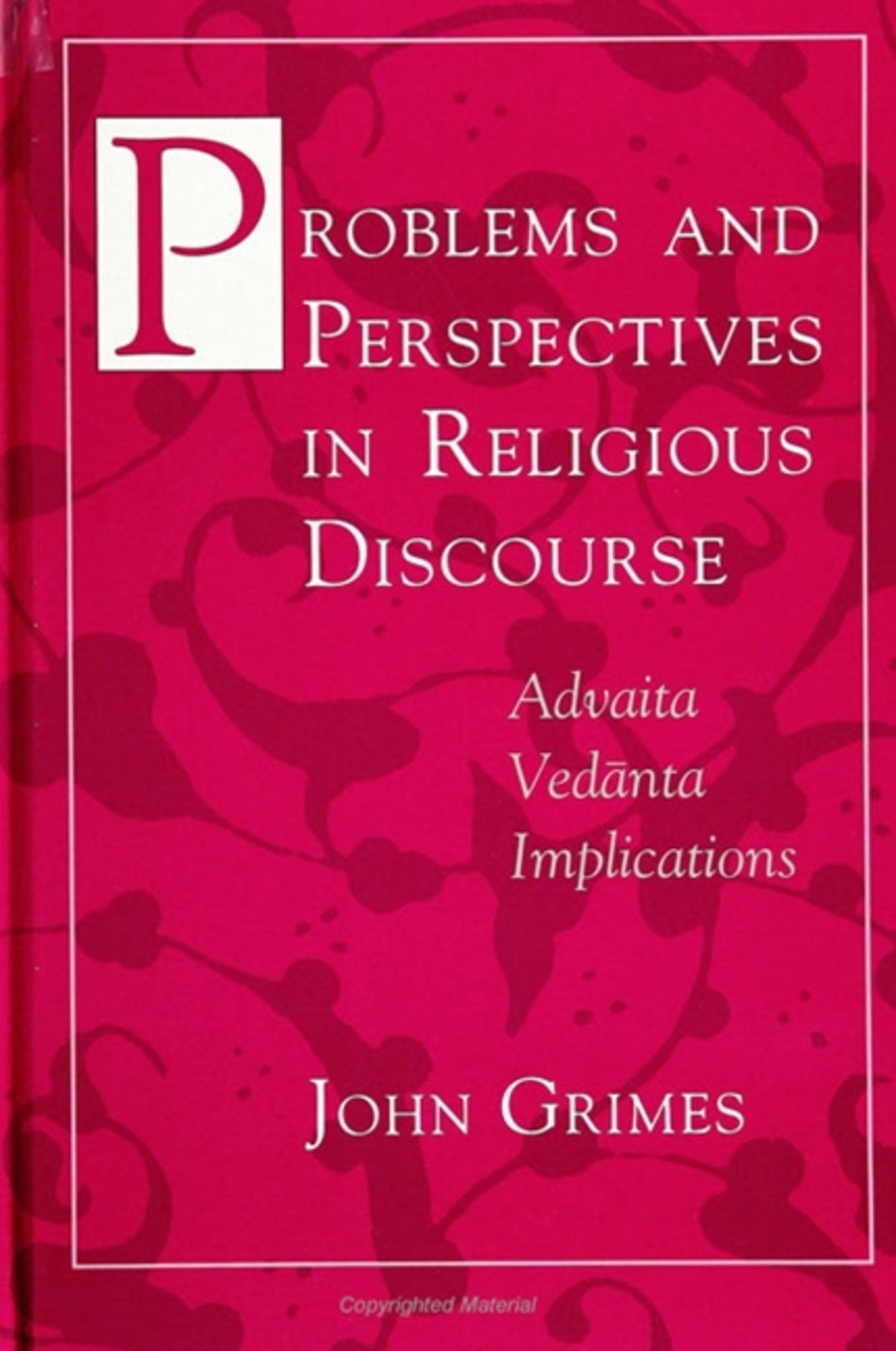We're sorry. An error has occurred
Please cancel or retry.
Problems and Perspectives in Religious Discourse

Some error occured while loading the Quick View. Please close the Quick View and try reloading the page.
Couldn't load pickup availability
- Format:
-
24 February 1994

Religious discourse uses ordinary language in an extraordinary way. This book surveys Western and Indian discussions of the nature and aspects of religious discourse. It presents the first cross-cultural elucidation of Advaita Vedānta Implications as religious discourse.


"This is an important and original book. It is a fine exposition of the questions about religious language and the problem of talking about the transcendent. I know of no one better able to expound an Advaitin viewpoint than Dr. Grimes." — Ninian Smart, University of California, Santa Barbara
"The author has illumined some very important problems in the philosophy of religion and the East-West Dialogue. Good examples are, what kind of meaning does religious discourse have? Is there a difference in the meaning of Advaita Vedanta statements from those in exoteric Judeo-Christian traditions and from those in esoteric traditions such as the mysticism of Meister Eckhart and Jacob Boehme? John Grimes does a masterful job of discussing such profound and difficult western scholars as Anthony Flew, John Hick, and A. J. Ayer as well as important Indian philosophers such as as Gaudand Sankara. Grimes's comments scintillate on every page.
"Even for a person totally skeptical of religious discourse, this book is significant comparative philosophy and religion. Grimes shows parallels between Wittgenstein and Sankara. His insights into Nagarjuna show fascinating parallels between Buddhism and Advaita Vedanta. This is one of the most important books that I have read dealing with the relationship of logical positivism and empiricism to Indian philosophy. Grimes's discussion of pragmatism in relation to Advaita Vedanta is very interesting indeed." — Judy D. Saltzman, California Polytechnic State University
Preface
Special Feature of the Work
Reasons Theme was Chosen
Contributions of the Work
Acknowledgments
I. Introduction
The World of Advaita Vedanta
The Problem
Two Assertions
Religion and Language
II. Advaita and Religious Discourse
Certainty
Advaita vis-à-vis Religious Discourse
Logic of Religious Discourse
Qualifications for Religious Knowledge
How Religious Knowledge is Conveyed
Advaita vis-à-vis Other Systems
The Nature of Religious Discourse
Three Assertions
Consequences
III. Advaita Vedanta: A Perspective
What is Advaita Vedanta
Perspective
Key Concept
IV. Advaita Vedanta Prospectus
Religious Discourse The Problem
Indirect Approaches
The Gap
Religious Discourse—Its 'Use'
Peculiarities of Religious Discourse
The Theme of Advaita Vedanta
Sankara's Solution
Advaita and Language
V. Methods and Perspectives
Introduction
Method
Methodology
Relation to Epistemology
Language and Knowledge
Brahman—Atman
Brahman—The Objective Vision
Is the Absolute Known or Not?
Atman —TheSubjective Vision
Atman is Brahman
VI. East and West
Introduction
Part 1
Part 2
VII. Advaita's Solution
Introduction
Two Approaches to Religious Discourse
Consequences of the Two Approaches
Two Levels of Language
A Two-Level Theory of Religious Discourse
Can the Absolute Be Signified Directly?
Second-Level Problems
Satkaryavada and Asatkaryavada
One Level Language—Absolute Language
Language About the Absolute
VIII. Retrospect of Results
Comment
Notes
Bibliography
Index



